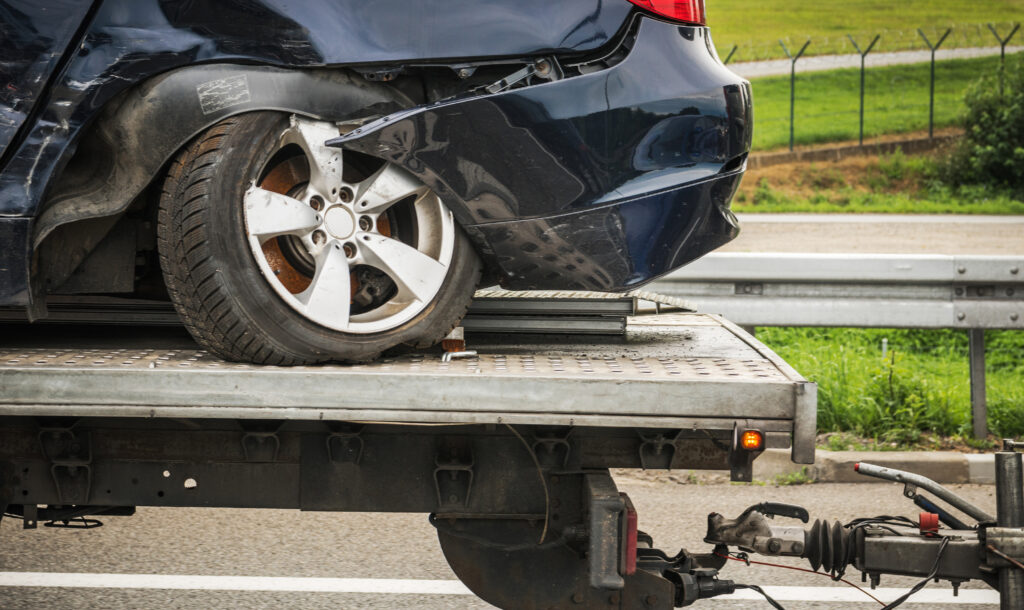
You might have heard a lot about motor GAP insurance in the news recently as the policy has come under fire by the Financial Conduct Authority (FCA) after it discovered some policy providers were failing to provide fair value to their consumers. As a result, many insurers have taken their policies off the market.
Understandably, this has caused concern throughout not only the insurance industry but also for those who either have a GAP policy or are considering purchasing one.
Fortunately, here at Save More Money, we’re still selling our motor GAP policies as we’ve remained compliant with the FCA’s standards for fair value.
However, if you’re still confused about what exactly motor GAP insurance is and where the controversy stems from, this article could benefit you. We’ll cover:
- What is motor GAP insurance?
- Why is motor GAP insurance beneficial for motorists?
- When GAP insurance might not be worth it
- Why is there controversy surrounding the policy?
- Is motor GAP insurance worth it?
- The bottom line

What is motor GAP insurance?
Motor Guaranteed Asset Protection (GAP) insurance is designed to cover the financial discrepancy between the current cash value of a vehicle and the full amount of money paid for a car at the time of purchase if a vehicle is written off or declared a total loss.
GAP insurance also applies to leased vehicles and would cover any outstanding payments left on the vehicle over and above the car’s current market price.
Why is motor GAP insurance beneficial for motorists?
Among other things, motor GAP insurance is deemed beneficial for car owners due to vehicle depreciation. It’s common knowledge that once you drive your car off the forecourt, it begins to decrease in value. However, it’s not so widely understood that motor insurance companies typically only pay out the value of the vehicle at the time of the claim rather than what was originally paid for it.
Therefore, without this type of policy, vehicle owners might find themselves at a significant financial loss or paying a significant amount of money to clear the remaining finance on a vehicle they no longer possess.
Additionally, if you purchased your car on finance or are leasing a vehicle, without motor GAP insurance you could find yourself paying monthly instalments for a car you no longer own. Those who opt for loans with low down payments and long-term loans of 60 months or more are more likely to be affected by this type of problem.
When GAP insurance might not be worth it
While GAP insurance is considered beneficial by many motorists, there are some occasions when it might not be a good idea for you. For example:
- You’ve paid a significant down payment: If you made a substantial down payment, you’re less likely to owe more than the car is worth at any point, even if it does get written off.
- You took out a short-term loan: If you have a short loan term (36 months or less), your loan balance is more likely to stay close to the car’s value.
- You plan to pay your loan off quickly: The more quickly you pay off your loan, the less likely it is you’ll need to make a GAP insurance claim.
- You purchased a used car: The depreciation rate on used cars is often slower than that of new cars, so the difference between its value and the loan balance will be smaller.
Also see: How much does motor GAP insurance cost?
Why is there controversy surrounding the policy?
Last summer, the FCA’s new 12th principle of their ‘Principles for Business’ (Consumer Duty), came into effect.
Consumer Duty is a principle that provides a high level of conduct and associated outcomes in financial services to make sure consumers receive fair value and prices compared to the benefit they receive from the purchased service or product. Essentially, it helps protect customers.
Unfortunately, it came to light that some providers weren’t adhering to this and in many cases, 70% of the price paid by consumers in motor GAP insurance premiums actually went to commission for parties in the distribution chain (FCA, 2024). This has been found to be particularly prevalent in the motor dealership industry where policies are being sold for double what an insurer like Save More Money would charge (FCA, 2024).
Due to this discovery, the only option for the FCA was to urge insurers to reassess their policies.

Is motor GAP insurance worth it?
We can’t tell you whether GAP cover is right for you as everybody’s situation is different.
However, despite the controversy, motor GAP insurance is still considered a highly valuable type of cover provided you choose the right insurer.
According to research by Auto Express conducted last year, a new car could lose up to 35% of its original value within the first year of ownership (Auto Express, 2023). That means, if anything happens to your car that deems it a write-off within the first 12 months, you may only recover 65% of the price you initially paid for it, which, in some cases, accounts for a lot of money.
So, in this instance, motor GAP insurance could help you recover the discrepancy so you’re not left in a deficit.
Although, it should be noted that GAP insurance is of greater benefit to some people than others. For example, those who have recently purchased a new vehicle.
Also see: Who needs motor GAP insurance
The bottom line
Despite the current controversy, motor GAP insurance can still be highly beneficial if you’ve recently bought a new car or you’re at significant risk of owing more than your car’s value on finance/lease payments. And, as long as the insurer you choose acts in line with the FCA’s principles (including consumer duty), you shouldn’t be concerned about your GAP policy.
If you’re looking for a motor GAP policy, using a third-party comparison site could help you feel more confident in your choice as you’ll be able to compare the costs of each provider, minimising the chance you’ll pay over the odds.
However, if you want GAP cover from a provider you can trust, Save More Money could provide you with coverage from just £7 a month.


